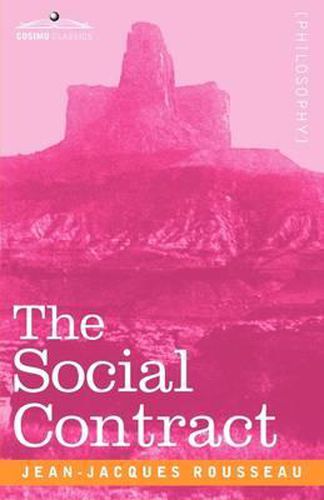Readings Newsletter
Become a Readings Member to make your shopping experience even easier.
Sign in or sign up for free!
You’re not far away from qualifying for FREE standard shipping within Australia
You’ve qualified for FREE standard shipping within Australia
The cart is loading…






Wise men, if they try to speak their language to the common herd instead of its own, cannot possibly make themselves understood. There are a thousand kinds of ideas which it is impossible to translate into popular language. Conceptions that are too general and objects that are too remote are equally out of its range: each individual, having no taste for any other plan of government than that which suits his particular interest, finds it difficult to realize the advantages he might hope to draw from the continual privations good laws impose. -from VII: The Legislator How does human nature impact politics and government? What is the social contract, and what are our obligations to it? Is the general will infallible? What are the limits of sovereign power? What are the marks of good government ? What constitutes the death of the body politic? How can we check the usurpations of government? Swiss philosopher JEAN-JACQUES ROUSSEAU (1712-1778) was a dramatic influence on the French revolution, 19th-century communism, the American Founding Fathers, and much modern political thought, primarily through this 1762 work, his most influential. Here, he explores concepts of civil society, human sovereignty, and effective government that continue to be debated-and not yet settled-in the 21st century. A classic of modern thought, this is required reading for anyone wishing to be considered well educated.
$9.00 standard shipping within Australia
FREE standard shipping within Australia for orders over $100.00
Express & International shipping calculated at checkout
Wise men, if they try to speak their language to the common herd instead of its own, cannot possibly make themselves understood. There are a thousand kinds of ideas which it is impossible to translate into popular language. Conceptions that are too general and objects that are too remote are equally out of its range: each individual, having no taste for any other plan of government than that which suits his particular interest, finds it difficult to realize the advantages he might hope to draw from the continual privations good laws impose. -from VII: The Legislator How does human nature impact politics and government? What is the social contract, and what are our obligations to it? Is the general will infallible? What are the limits of sovereign power? What are the marks of good government ? What constitutes the death of the body politic? How can we check the usurpations of government? Swiss philosopher JEAN-JACQUES ROUSSEAU (1712-1778) was a dramatic influence on the French revolution, 19th-century communism, the American Founding Fathers, and much modern political thought, primarily through this 1762 work, his most influential. Here, he explores concepts of civil society, human sovereignty, and effective government that continue to be debated-and not yet settled-in the 21st century. A classic of modern thought, this is required reading for anyone wishing to be considered well educated.